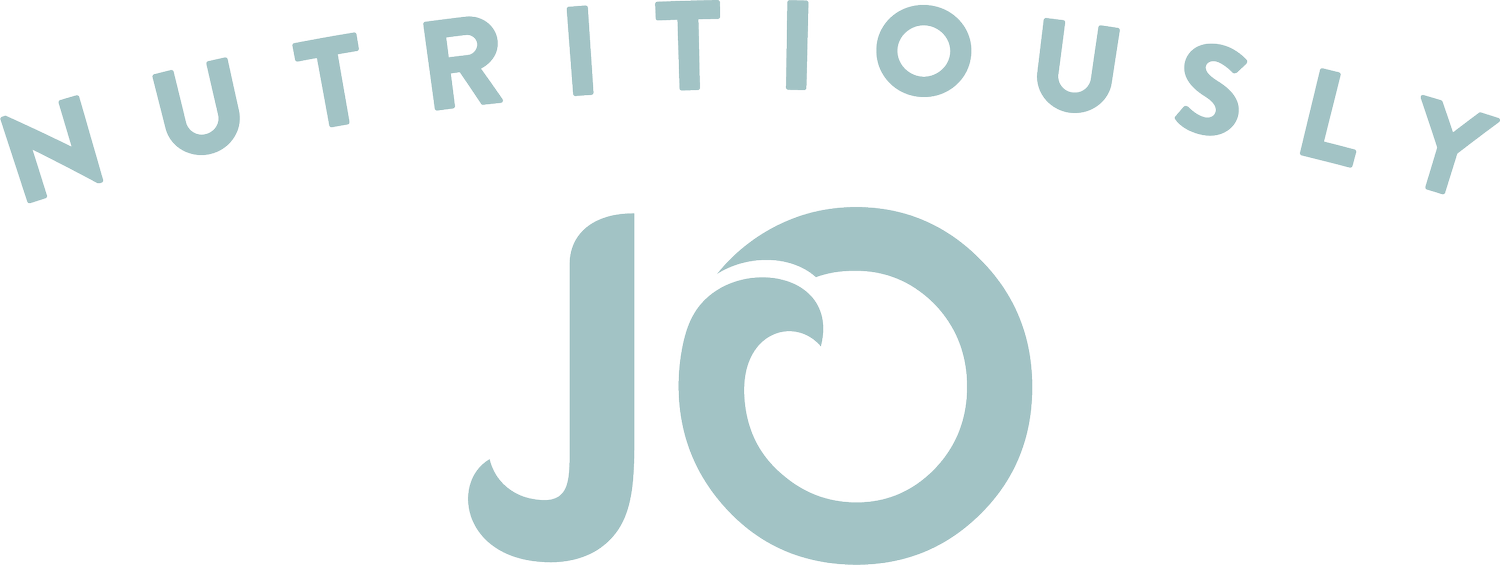Say Goodbye to PCOS and Hello to a New You! My Top 5 PCOS Fighting Foods
By: Johanna Sambucini
HORMONAL IMBALANCES
Many women can experience hormonal imbalances from time to time. And lots of things can cause it right? Today, we are stressed out more than ever, are on poor diets, sometimes we lack adequate sleep, some of us may have an auto immune disorder, or be on medications, or birth control and the list goes on...but did you know that hormonal balance is deeply connected to the food we eat, how we sleep, how we move, the toxins we absorb, our current body weight, and the stress levels we accumulate? If hormonal imbalances are not addressed properly, it can lead to an increase risk of developing polycystic ovarian syndrome, perimenopause, thyroid dysfunction, insulin resistance, weight gain, infertility, and even breast cancer. Yikes! So let’s talk about one very common hormonal imbalance many women face: PCOS! Now I’m sure, it’s a topic we have all heard of from time to time right? But what does polycystic really mean? Have you been diagnosed with PCOS but feel stuck and don’t know how to address it? Or are you tired of dealing with PCOS symptoms and just want to feel like yourself again? Well, have no fear, because whole foods are here!
PCOS 101:
Here’s the lowdown on PCOS: Polycystic Ovarian Syndrome, affects 6-12%, approximately 5 million women between the ages of 12 and 44 years old. That percentage may seem somewhat low but that’s actually a lot of women affected! It’s important to understand that PCOS is not a disease, but rather a syndrome caused by a series of symptoms and hormonal imbalances in the reproductive organs. This is why balancing our hormones is crucial for optimal health and wellbeing. The term polycystic means that a woman’s ovaries have multiple cysts on them. The ovaries then start to make higher levels of androgens, which are the male hormones, causing an increase in testosterone levels, rather than estrogen, resulting in more masculine symptoms like unwanted facial hair, body hair, thinning hair or male pattern baldness, weight gain, and even cystic acne. Estrogen levels are also affected, leading to gynecological and menstrual abnormalities such as infertility, irregular periods, amenorrhea, or ovarian cysts. So what causes PCOS? PCOS can be caused by many factors such as producing higher levels of insulin and excess androgen, it can also be related to family history, smoking, excessive alcohol consumption, premature puberty, obesity and poor diet. As far as poor diet goes, foods that can trigger or worsen PCOS symptoms include gluten, refined carbohydrates, sugar and artificial sweeteners, dairy, chemical preservatives, additives, and processed meats. So how can we manage PCOS naturally? Here is where holistic nutrition comes in. Behold the power of whole foods!
FIGHTING FOODS:
EAT THE RAINBOW - When it comes to PCOS, controlling blood sugar, eating a high fiber and anti-inflammatory foods are essential to help manage and reduce symptoms. This is where eating the rainbow comes in! Eating a variety of dark leafy greens, cruciferous veggies, and bright colored vegetables such as kale, collards, spinach, cabbage, broccoli, especially sprouts, Brussel sprouts, yellow squash, carrots, romaine lettuce and red peppers are loaded with phytonutrients such as vitamins A, C, fiber, antioxidants, and anti-inflammatory foods that are low on the glycemic index, improve insulin resistance and help balance and detoxify the body gently.
AVOCADOES- Avocadoes are a PCOS nutritional superfood loaded with vitamins, minerals, and healthy fats that help lower inflammation, promote progesterone production in the body, and aid in nutrient absorption because of their fat content. Healthy fats are needed for hormone production, good cholesterol levels, and help reduce oxidative stress in the body. This is why avocado is such a wonderful food.
NUTS AND SEEDS- Walnuts, almonds, brazil nuts, cashews, chia, flax, and sunflower, pumpkin, and hemp seeds are amazing sources of nutrient dense proteins. Nuts and seeds act as a powerhouse because they are high in Omega 3 fatty acids, packed with vitamins and minerals, help balance blood sugar levels, and lower insulin. One particular seed I love are pumpkin seeds! Pumpkin seeds are rich in magnesium, iron, zinc, they help regular hormone function, regulate periods, and improve hair, skin, and nails.
LEGUMES- Legumes are a must for PCOS due to its insulin and blood sugar lowering effect! They are high in B vitamins, zinc, magnesium, are good source of folate, antioxidants, they are low in saturated fats, and high in fiber, making them wonderful whole foods for digestion.
CINNAMON- Adding a little cinnamon to your food per day can keep your PCOS symptoms at bay! Cinnamon is a wonderful spice that has been proven to help reduce insulin resistance, regulate blood sugar, and menstrual cycle. Spice up your eating with this aromatic warm spice.
References:
Bauman, E., Friedlander, J. (2016). Therapeutic Nutrition. Part 1. Penngove, CA: Bauman College
Polycystic Ovarian Syndrome. Retrieved from https://www.womenshealth.gov/a-z-topics/polycystic-ovary-syndrome
Sirmians, S. and Pate, K. (2013). Epidemiology, diagnosis, and management of polycystic ovary syndrome US National Library of Medicine (6)1-13. Retrieved from https://www.ncbi.nlm.nih.gov/pmc/articles/PMC3872139/

